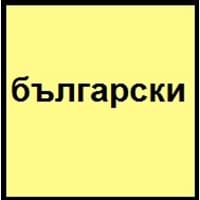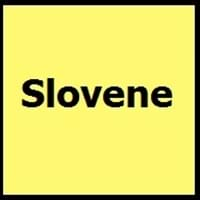Bulgarian vs Slovene
Countries
Bulgaria, European Union
European Union, Slovenia
National Language
Bulgaria
Austria, Croatia, Hungary, Italy, Slovenia
Second Language
Not spoken in any of the countries
Not spoken in any of the countries
Speaking Continents
Africa, Europe
Europe
Minority Language
Hungary, Romania, Serbia, Slovakia, Ukraine
Austria, Hungary, Italy
Regulated By
Institute for the Bulgarian language
Slovenian Academy of Sciences and Arts
Interesting Facts
- The only Slavic language which has lost all its grammatical cases is Bulgarian.
- The first Slavic language to be written was Bulgarian in 9th century.
- The Freising Monuments is the oldest preserved records of written Slovene from 10th century.
- The first Slovene book was printed in 1550.
Similar To
Macedonian language
Serbo-Croatian
Derived From
Not Available
Not Available
Alphabets in
Bulgarian-Alphabets.jpg#200
Slovene-Alphabets.jpg#200
Writing Direction
Left-To-Right, Horizontal
Left-To-Right, Horizontal
Hello
Здравейте (Zdraveĭte)
Halo
Thank You
Благодаря ти (blagodarya ti)
Hvala
How Are You?
Как си? (Kak si?)
Kako se imate?
Good Night
Лека нощ (Leka nošt)
Lahko noč
Good Evening
Добър вечер (Dobãr večer)
Dober večer
Good Afternoon
Добър ден (Dobãr den)
Dober dan
Good Morning
Добро утро (Dobro utro)
Dobro jutro
Please
Моля (Molja)
Prosim
Sorry
Съжалявам (Sãžaljavam)
Oprostite
Bye
Довиждане (Doviždane)
Nasvidenje
I Love You
Обичам те (Običam te)
Ljubim te
Excuse Me
Извинете ме (Izvinete me)
Oprostite
Dialect 1
Kotel-Elena-Dryanovo
Prekmurje Slovene
Where They Speak
Bulgaria
Hungary, Slovenia
How Many People Speak
Not Available
Dialect 2
Panagyurishte
Resian
Where They Speak
Bulgaria
Italy
Where They Speak
Bulgaria
Slovenia
Speaking Population
Not Available
Not Available
Native Name
български (bãlgarski)
Not available
Alternative Names
Balgarski
Slovenian, Slovenscina
French Name
bulgare
slovène
German Name
Bulgarisch
Slowenisch
Pronunciation
Not Available
[slɔˈʋèːnski ˈjɛ̀ːzik], [slɔˈʋèːnʃt͡ʃina]
Ethnicity
Not Available
Slovenes
Origin
9th Century
972-1093
Language Family
Indo-European Family
Indo-European Family
Subgroup
Slavic
Not Available
Branch
Southern
Not Available
Early Forms
Old Bulgarian, Middle Bulgarian, Modern Bulgarian
No early forms
Standard Forms
Standard Bulgarian
Slovene
Language Position
Not Available
Signed Forms
Bulgarian Sign Language
Not Available
Scope
Individual
Individual
ISO 639 6
buls
Not Available
Glottocode
bulg1262
slov1268
Linguasphere
53-AAA-hb
53-AAA-f
Language Type
Living
Living
Language Linguistic Typology
Subject-Verb-Object
Not Available
Language Morphological Typology
Not Available
Fusional
Bulgarian and Slovene Language History
Comparison of Bulgarian vs Slovene language history gives us differences between origin of Bulgarian and Slovene language. History of Bulgarian language states that this language originated in 9th Century whereas history of Slovene language states that this language originated in 972-1093. Family of the language also forms a part of history of that language. More on language families of these languages can be found out on Bulgarian and Slovene Language History.
Bulgarian and Slovene Greetings
People around the world use different languages to interact with each other. Even if we cannot communicate fluently in any language, it will always be beneficial to know about some of the common greetings or phrases from that language. This is where Bulgarian and Slovene greetings helps you to understand basic phrases in Bulgarian and Slovene language. Bulgarian word for "Hello" is Здравейте (Zdraveĭte) or Slovene word for "Thank You" is Hvala. Find more of such common Bulgarian Greetings and Slovene Greetings. These greetings will help you to be more confident when conversing with natives that speak these languages.
Bulgarian vs Slovene Difficulty
The Bulgarian vs Slovene difficulty level basically depends on the number of Bulgarian Alphabets and Slovene Alphabets. Also the number of vowels and consonants in the language plays an important role in deciding the difficulty level of that language. The important points to be considered when we compare Bulgarian and Slovene are the origin, speaking countries, language family, different greetings, speaking population of these languages. Want to know in Bulgarian and Slovene, which language is harder to learn? Time required to learn Bulgarian is 44 weeks while to learn Slovene time required is 44 weeks.





